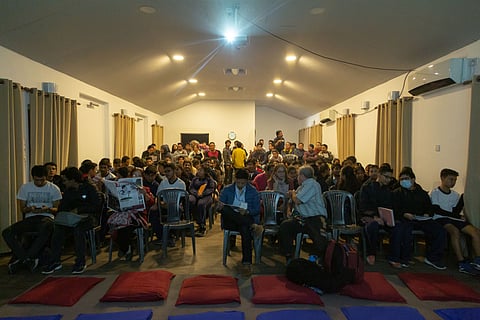Documenting Southasia
The 12th edition of Film Southasia (FSA) was held in Kathmandu from 14 – 17 November 2019. In her opening remarks at the inauguration, the festival director Mitu Varma said that it took over a year to select the films from 2500 entries. The festival had opened its doors this year to digital entries, which had multiplied the number of films. Kanak Mani Dixit, currently the chairperson of the FSA, pointed out in his inaugural address that the festival was being held at a time of democratic distress in Southasia. The title of the festival, 'Where the Mind is Free', Dixit said, was inspired by Tagore's poem 'Where the Mind is Without Fear'. This point was amply demonstrated in the festival's inaugural film Indus Blues (2018) from Pakistan, directed by Jawad Sharif (2018) – a documentary on the dying art of making musical instruments and the associated musical traditions that were becoming extinct. As the film illustrated, the combination of globalisation and ideological fundamentalism in Southasia had resulted in a shrinking space for music and art. In particular, the cultural formations linked to musical instruments were getting lost. Some of the musicians documented in the film were the last surviving members of their tradition.
All in the family
Family was a central theme in many of the documentaries shown at the festival. Abu (2017) by Arshad Khan dealt with the difficult relationship of a gay son with his father through changing political times and spaces, as the family migrates from Pakistan to Canada. The film was interesting in its use of home videos, Hindi film songs, photos and albums that charted the protagonist's life from childhood to adulthood. The mother, who loves her son dearly, and dances with abandon in Pakistan to Chalte, Chalte from Pakeezah in a home video, becomes quite conservative in Canada and is critical of her son and his life choices.

